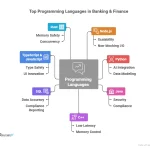
Insurance is something you hope to never need – but it’s essential to help your business stay operational. It’s also a big investment, and you must balance your budget to find the right policy for your business.
There are many different types of business insurance, but some primary policies include business owners policy (BOP), property insurance and management liability insurance. You may also need employment practices liability, fiduciary and directors and officers (D&O) insurance.
Assess Your Risks
When determining which types of business insurance are right for your company, it’s essential to assess the risks that could impact it. Generally, this involves evaluating the probability that an event will happen and calculating its consequences. It can also include analyzing the safety measures that have been put in place to minimize risks, and it may involve comparing assets to determine what coverage you need to protect them.
Typically, the size of your business, your location, and what assets you wish to insure will influence the premiums you pay for certain policies. In addition, deductibles, the amount you will be required to pay before your insurance provider kicks in to help cover a loss, are an important factor in choosing coverage.
In many cases, it’s helpful to work with a commercial insurance agent who will analyze your company’s operations, assets, risks and liabilities to help you find the appropriate policies. It’s also a good idea to reevaluate your coverage on an annual basis and after any major changes to your business.
Know Your Insurance Obligations
When you’re ready to shop for business insurance, get quotes from multiple providers. Some insurers offer their quotes directly on their websites, while others partner with independent brokers to help you compare options and rates. Regardless of which method you choose, make sure that the quotes you receive are comparable and that you’re looking at the same policy details (e.g., liability limits, deductibles and add-ons). Independent brokers often work on commission; ask about whether this fee will be included in the premiums you’ll pay.
Also consider the insurer’s reputation and customer service quality. An online review or social media feedback can help you gauge how well the company treats its customers and how responsive their service representatives are when it comes to questions about your policy or coverage. Some insurers use credit information when underwriting or rating a policy; ask if they’ll re-evaluate your rate once you’ve made improvements to your credit report.
Get Quotes
Once you have assessed your business’ risks and determined what lines of coverage you need, it is time to get quotes. You can do this on your own by calling insurers or working with a broker who shops on your behalf. An independent agent or broker will work with multiple carriers and can provide you with comparable quotes.
When requesting quotes, make sure to include information on any vehicle safety features and your driving history that could help reduce the premiums. You should also have a clear picture of your current financial status, including assets, liabilities and budget.
If you are a medium-sized company, you may want to consider specialized policies that combine standard property and liability coverage. It is also important to evaluate the quality of healthcare options offered. This includes choices of providers, hospitals and medical groups, as well as customer service. See Evaluating Health Coverage for more information. Also, pay attention to deductibles and other cost-sharing requirements.
Evaluate Your Options
The process of choosing the right business insurance is complex, and it takes a thorough review of your biggest risks and your state’s insurance requirements. You may also find that some coverage you need is available at a lower premium if you bundle it with other policies.
An experienced insurance agent will be able to recommend a plan that meets your business needs and budget. It’s important to remember that your business will change over time, so it is recommended that you review your policy each year and make adjustments accordingly.
For example, if you own a retail store with a lot of expensive inventory, you might want to add business interruption insurance. This covers your loss of income and pays for operating expenses if the business is forced to close due to a fire, theft or natural disaster. It’s often bundled with property and liability coverage in a business owner’s policy (BOP). Other common policies include short-term disability, life and dental insurance for employees, as well as management liability coverage, which includes employment practices liability and fiduciary/fidelity coverage.





